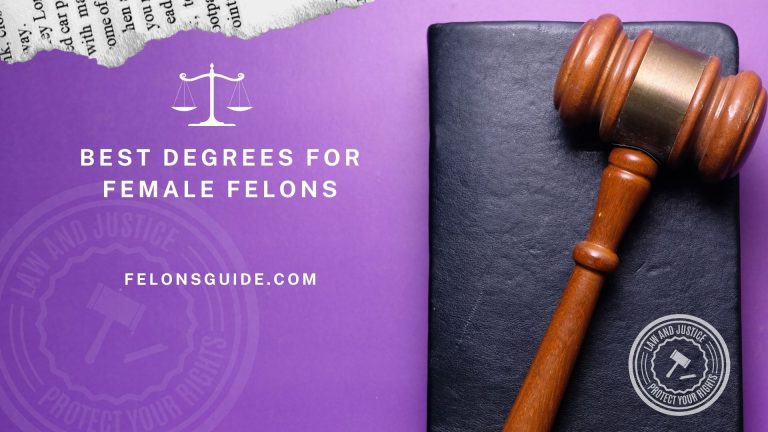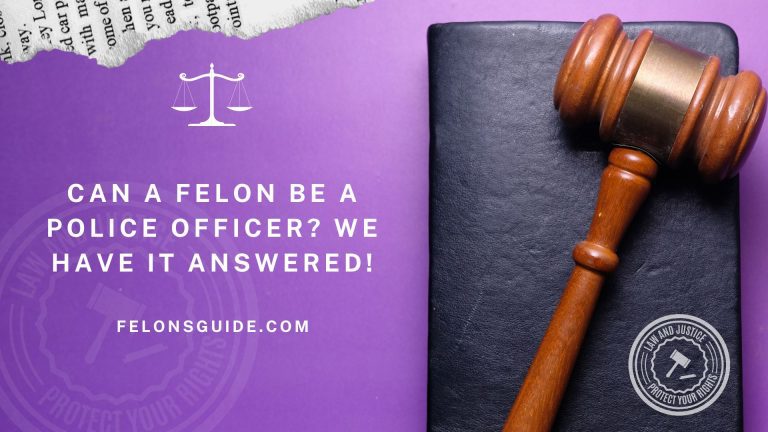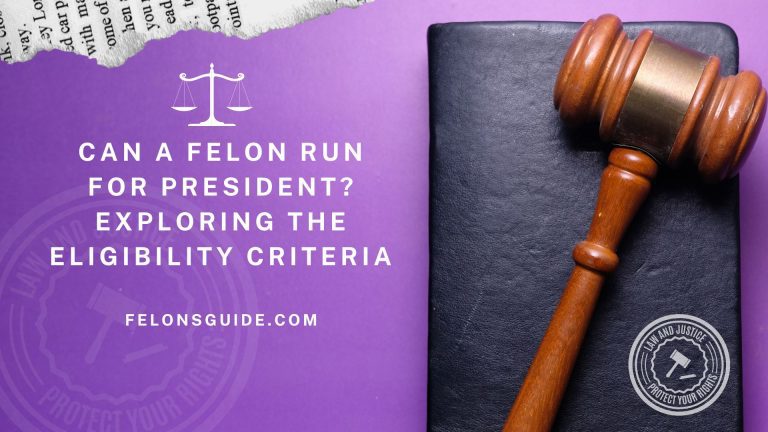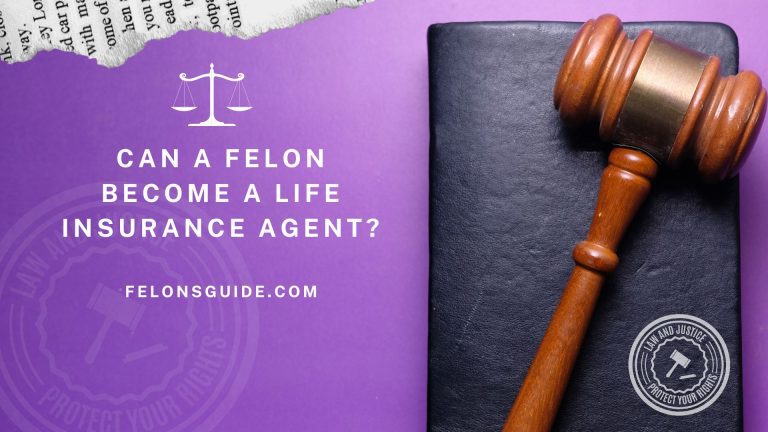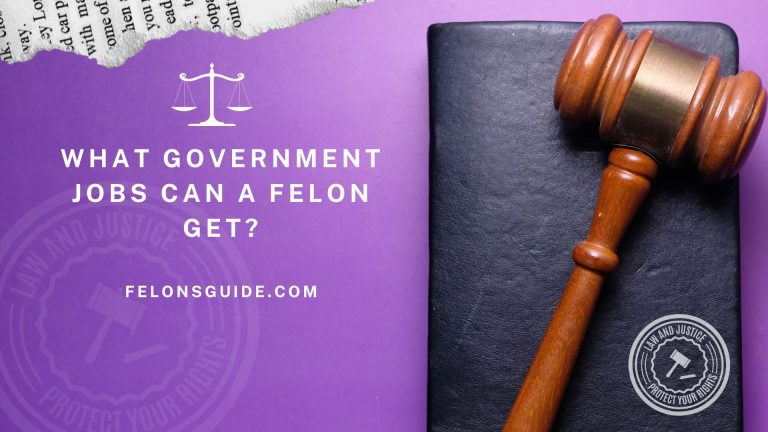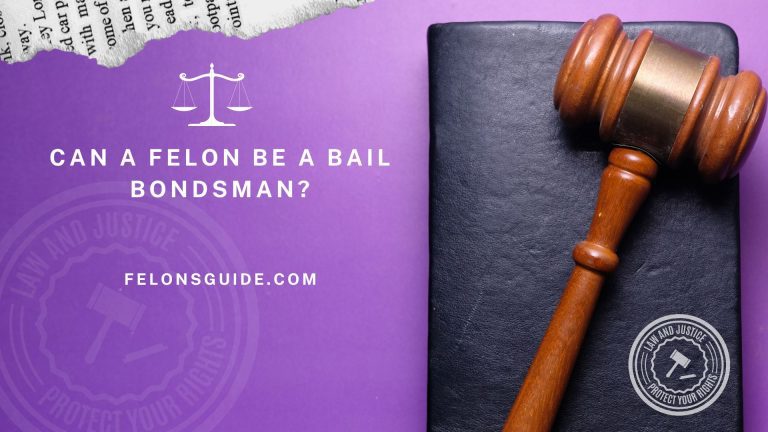Can a Felon Get a Pilot License? Understanding the Requirements and Limitations
Can a Felon Get a Pilot License? Understanding the Requirements and Limitations – For some individuals, flying a plane is a lifelong dream. However, for convicted felons, that dream may seem out of reach. One of the most common questions asked by convicted felons is whether they can get a pilot license. The answer is not straightforward, as there are various factors that determine whether a felon can obtain a pilot’s license.
In this article, we will explore the question “Can a Felon Get a Pilot License?” and provide you with all the information you need to know.
Can a Felon Get a Pilot License? Exploring the Possibilities
Understanding the FAA Regulations for Pilots
Before we delve into whether a convicted felon can obtain a pilot’s license, it’s crucial to understand the Federal Aviation Administration (FAA) regulations for pilots. The FAA is the governing body that regulates and oversees all aspects of civil aviation in the United States.
To become a pilot, an individual must meet the FAA’s eligibility requirements, which include:
- Being at least 17 years old
- Being able to read, write, speak, and understand English
- Obtaining a medical certificate from an FAA-designated Aviation Medical Examiner (AME)
- Completing the necessary flight training and passing a practical test
Also Read: Can a Felon Go to a Shooting Range? Understand What Law Says
The Impact of a Criminal Record on a Pilot’s License
The FAA requires pilots to be of good moral character, which means they must not have any criminal convictions that could jeopardize the safety of passengers or the public. As such, the FAA conducts a background check on all pilot applicants.
The answer to the question of whether a felon can get a pilot’s license is not a straightforward yes or no. It depends on the specific circumstances of the case and the discretion of the Federal Aviation Administration (FAA).
While the FAA regulations state that individuals with certain felony convictions, including drug offenses, espionage, treason, and aircraft-related crimes, are not eligible for a pilot’s license, there are exceptions to this rule. Each case is evaluated on an individual basis, and the FAA may consider factors such as the nature and severity of the offense, the length of time since the conviction, and evidence of rehabilitation when making a determination.
It is important to note that individuals who have been convicted of any felony within the last 10 years may be ineligible for a license. However, this is not an absolute rule, and the FAA may consider extenuating circumstances.
In summary, the answer to whether a felon can get a pilot’s license is not a simple yes or no. It depends on the specific circumstances of the case and the discretion of the FAA. Individuals with a criminal record seeking a pilot’s license should consult with an aviation attorney to determine their eligibility and navigate the application process.
Also Read: Does Menards hire Felons? Explore more about Job Opportunities
Types of Felony Convictions that can Affect Pilot License Eligibility
Certain types of felony convictions can disqualify an individual from obtaining a pilot’s license. These include:
- Drug-related offenses
- Violent crimes
- Terrorism-related offenses
- Fraud
- Crimes involving aircraft or other transportation vehicles
Rehabilitation and the Role It Plays in Obtaining a Pilot License
While a criminal record can impact an individual’s ability to obtain a pilot’s license, rehabilitation can play a role in mitigating the effects of a criminal conviction. The FAA takes into account an individual’s efforts to rehabilitate themselves when making licensing decisions.
Also Read: Can a Felon be a Police Officer? We have it Answered!
Steps for Convicted Felons to Obtain a Pilot License
If you are a convicted felon who wants to become a pilot, there are steps you can take to increase your chances of obtaining a pilot’s license. These include:
- Seeking legal counsel to determine your eligibility for a pilot’s license
- Completing a drug or alcohol rehabilitation program (if necessary)
- Maintaining a clean criminal record and avoiding any additional legal trouble.
- Building flight hours and obtaining a private pilot’s license
- Demonstrating your rehabilitation efforts to the FAA through character references and other evidence
What Are the FAA’s Guidelines for Pilots with Criminal Records?
The Federal Aviation Administration (FAA) has strict guidelines when it comes to pilots with criminal records. These guidelines are in place to ensure the safety of passengers and the public.
According to the FAA, a pilot must have good moral character and demonstrate the ability to operate an aircraft safely. As such, the FAA conducts a background check on all pilot applicants to determine if they meet the eligibility requirements.
If an applicant has a criminal record, the FAA will consider the nature and severity of the offense, as well as how much time has passed since the conviction. The FAA may also consider the applicant’s rehabilitation efforts, such as completing a drug or alcohol treatment program, participating in community service, or obtaining counseling.
Certain types of felony convictions, such as those involving drug trafficking, espionage, or terrorism, may automatically disqualify an individual from obtaining a pilot’s license. Additionally, any conviction that resulted in a sentence of more than one year in prison or any drug-related conviction within the past 10 years may also disqualify an individual.
In some cases, the FAA may require an individual with a criminal record to complete additional training or certifications before obtaining a pilot’s license. This is to ensure that the individual is fully qualified and capable of operating an aircraft safely.
It’s important to note that even if an individual with a criminal record is able to obtain a pilot’s license, they may face additional scrutiny and restrictions. For example, they may not be able to obtain certain security clearances or fly certain types of aircraft.
Overall, the FAA’s guidelines for pilots with criminal records are strict but necessary for ensuring the safety of passengers and the public. If you have a criminal record and are interested in becoming a pilot, it’s important to seek legal counsel and understand the eligibility requirements and potential limitations.
FAQs:
Q: Can a felon get a commercial pilot’s license?
A: It is possible, but the FAA conducts a more extensive background check for commercial pilot applicants, and certain types of felony convictions may disqualify an individual from obtaining a commercial pilot’s license.
Q: How long do I have to wait after a felony conviction to apply for a pilot’s license?
There is no set waiting period for felons to apply for a pilot’s license. However, the FAA may require individuals with certain types of felony convictions to wait a specific amount of time before applying. It’s best to seek legal counsel to determine your eligibility and any waiting period requirements.
Q: Can expunging a criminal record help me obtain a pilot’s license?
A: Expunging a criminal record does not automatically guarantee eligibility for a pilot’s license. The FAA still conducts a background check and considers an individual’s overall character and rehabilitation efforts.
Conclusion:
In conclusion, obtaining a pilot’s license as a convicted felon is possible but can be challenging. The FAA regulations and background checks for pilots require individuals to meet certain eligibility requirements and maintain a good moral character. Certain types of felony convictions may disqualify an individual from obtaining a pilot’s license, but rehabilitation efforts can play a role in mitigating the impact of a criminal record.
If you are a convicted felon who wants to become a pilot, seeking legal counsel and demonstrating your rehabilitation efforts to the FAA can increase your chances of obtaining a pilot’s license. With determination and hard work, you can achieve your dream of becoming a pilot, regardless of your past mistakes.
